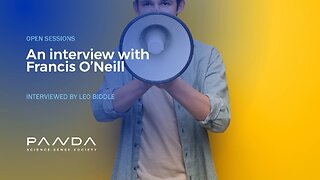Equal Citizens, Unequal Knowledge | Dr David Thunder
There is a fundamental tension between reliance on expert knowledge and equal citizenship in a constitutional democracy. On the one hand, it is generally understood that in a democratic society, citizens are equal and independent co-deliberators in the public sphere, meaning that no citizen’s evidence or reasons should be downgraded in public deliberation just because he has less access to power or money. If one citizen’s reasons or evidence are given more weight, it should be because their reasons are more persuasive, or their evidence is of a higher quality, or because they have proven themselves to be more qualified or knowledgeable about a subject than other citizens. If these conditions have been met, then giving more weight to the arguments or reasons of one citizen than another may be publicly justified and not inherently offensive to civic equality.
However, in practice this is not how public deliberation functions, for a number of reasons. First, people often use proxies like credentials and reputation to demonstrate their superior qualifications, and reputation or credentials may not be a reliable marker of superior knowledge. So the guy with the Harvard Ph.D may be gaining an unfair or inappropriate advantage in public debate even though his knowledge is no better for the purpose at hand than the next person’s. Second, people who are smart and well trained in a field of knowledge may be quite adept at dazzling the public with a display of erudition or “expertise” that conceals the weaknesses in their position or distort the data, giving rise to a relationship of intellectual domination or manipulation that is inconsistent with equal citizenship. Third, those with impressive credentials may be co-opted in a selective or one-sided way by politicians to legitimate their policy preferences, with no regard to opposing experts. Fourth, the danger of manipulation is only exacerbated in a world of intense specialisation, in which policymakers and ordinary citizens often have neither the time nor the energy to master the knowledge required to evaluate the plausibility of expert opinion.
The purpose of this presentation by research fellow Dr David Thunder from the Institute for Culture and Society at the University of Navarra in Spain, will be simply to review some of the main threats posed to equal citizenship by reliance on those conventionally considered to be qualified experts; and to explore some ways these threats might be mitigated both at the individual and institutional levels. David will not be offering any pat answers, but will be suggesting some damage limitation strategies. His hope is that the presentation will open up a conversation about how to better manage the risks knowledge hierarchies pose to freedom and equality of citizens as co-participants in a self-governing society.
The Covid event has revealed that it was about more than just public health and the political, economic and societal aspects of the response are of far greater significance than the virus itself. There remains a continued drive toward the transformation of our societies in ways that threaten democracy and our existing ways of life. Open Society Sessions aim to examine the political, societal and economic dimensions of our recent experience and analyse developments in the future.
See more of David's work at www.davidthunder.com
Watch more Open Society Sessions: https://www.pandata.org/open-society-sessions
Support our work: https://www.pandata.org/donate
-
 57:47
57:47
PANDA | Science. Sense. Society.
2 months agoAn interview with Francis O'Neill
8891 -
 3:16:17
3:16:17
-
 LIVE
LIVE
Right Side Broadcasting Network
7 days agoLIVE REPLAY: President Trump Returns for a Historic Rally in Butler, Pennsylvania - 10/5/24
11,481 watching -
 2:55:35
2:55:35
Nitrocross
8 days agoNitrocross Busch Light Race to the Mountains | Round 3 | October 5, 2024| 6pm ET / 4pm MT
99K22 -
 3:03:41
3:03:41
The Quartering
19 hours agoDonald Trump Elon Musk LIVE Rally In Butler Pennsylvania! Live Commentary & Hangout!
161K132 -
 4:15:41
4:15:41
Laura Loomer
15 hours agoEP 80: LIVE COVERAGE: President Trump Returns to Butler, PA
117K87 -
 2:11:01
2:11:01
Jewels Jones Live ®
1 day ago“NO MONEY FOR AMERICANS” | A Political Rendezvous - Ep. 94
126K47 -
 5:17:15
5:17:15
Drew Hernandez
1 day agoTRUMP'S RETURN TO BUTLER PA RALLY
139K102 -
 1:20:55
1:20:55
-
 1:00
1:00
steveinman
1 day agoDog sweeps the leg of a tortoise
120K41